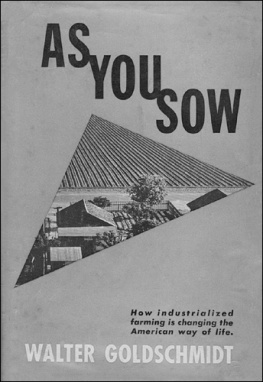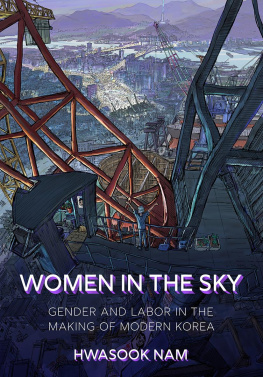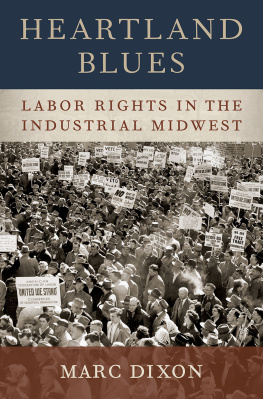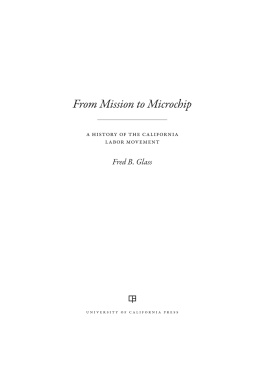Contents
Guide
Pagebreaks of the print version
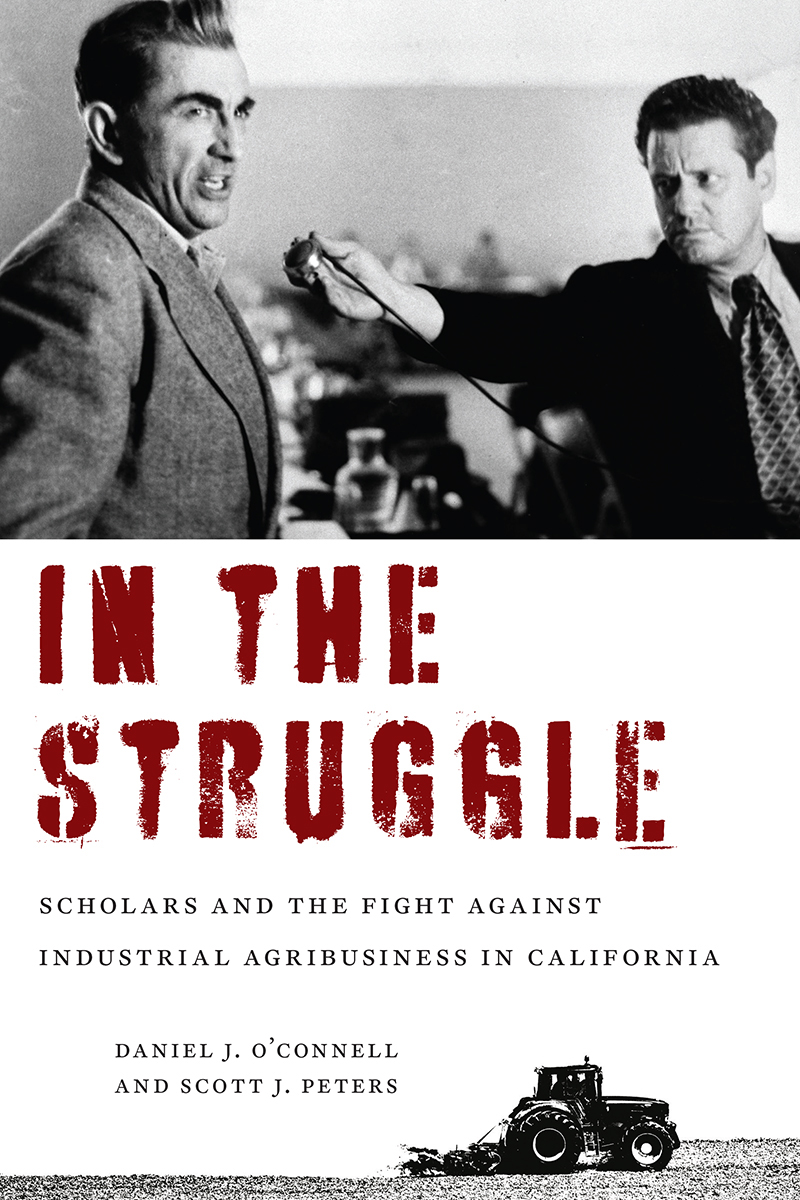
IN THE STRUGGLE
In the Struggle
Scholars and the Fight against Industrial Agribusiness in California
Daniel J. OConnell and Scott J. Peters
NEW VILLAGE PRESSNEW YORK
Copyright 2021 Daniel J. OConnell and Scott J. Peters
All rights reserved. Except for brief portions quoted for purposes of review, no part of this book may be reprinted, reproduced, or utilized in any medium now known or hereafter invented without prior permission in writing from the publisher.
Published in the United States by New Village Press
bookorders@newvillagepress.net
www.newvillagepress.org
New Village Press is a public-benefit, nonprofit publisher
Distributed by NYU Press
Library of Congress Cataloging-in-Publication Data
Names: OConnell, Daniel J. (Executive director of Central Valley Partnership) author. | Peters, Scott J. (Scott Joseph), author.
Title: In the struggle : politically engaged scholarship in the San Joaquin Valley of California / Daniel J. OConnell and Scott J. Peters.
Description: First edition. | New York : New Village Press, [2021] | Includes bibliographical references and index. | Summary: From the early twentieth century and across generations to the present, In the Struggle brings together the stories of eight politically engaged scholars, documenting their opposition to industrial-scale agribusiness in California. As the narrative unfolds, their previously censored and suppressed research, together with personal accounts of intimidation and subterfuge, is introduced into the public arena for the first time. In the Struggle lays out historic, subterranean confrontations over water rights, labor organizing, and the corruption of democratic principles and public institutions. As Californias rural economy increasingly consolidates into the hands of land barons and corporations, the scholars work shifts from analyzing problems and formulating research methods to organizing resistance and building community power. Throughout their engagement, they face intense political blowback as powerful economic interests work to pollute and undermine scientific inquiry and the civic purposes of public universities. The findings and the pressure put upon the work of these scholars-Paul Taylor, Ernesto Galarza, and Isao Fujimoto among them-are a damning indictment of the greed and corruption that flourish under industrial-scale agriculture. After almost a century of empirical evidence and published research, a definitive finding becomes clear: land consolidation and economic monopoly are fundamentally detrimental to democracy and the well-being of rural societies Provided by publisher.
Identifiers: LCCN 2020051065 (print) | LCCN 2020051066 (ebook) | ISBN 9781613321225 (paperback) | ISBN 9781613321232 (hardback) | ISBN 9781613321249 (ebook)
Subjects: LCSH: Agricultural industriesCaliforniaSan Joaquin Valley. | Water rightsCaliforniaSan Joaquin Valley. | Labor unionsOrganizingCaliforniaSan Joaquin Valley.
Classification: LCC HD9000.9.U6 C56 2021 (print) | LCC HD9000.9.U6 (ebook) | DDC 338.109794/8dc23
LC record available at https://lccn.loc.gov/2020051065
LC ebook record available at https://lccn.loc.gov/2020051066
Publication Date: July 2021
First Edition
Cover photo: Ernesto Galarza. Courtesy of Occidental College Special Collections and College Archives, People Files, Ernesto Galarza.
CONTENTS
PREFACE
This book aims to be useful, like a guidebook, as it maps a battlefield arcing across four generations of organizing and research.
Its stories and findings lay out a history of engagement with scholars positioned as political actors on fields of struggle. Across time, they inform and teach. They show us how to fightand whats worth fighting for.
In solidarity and succession, they collaborated and learned together, deploying knowledge into theaters of action. Each picking up the work of their predecessors, their lessons course togethertributaries to a deepening river flowing into our present moment of possibility. Compiled here, this collective journey is a roadmap that lays out tactics of organizing and refines theories of engagement.
Today, as battles continue, we benefit from their shared lessons and experience. Use them in preparation, as Paul Taylor advised, to study your targets.
Follow lines of inquiry until you have answers, apply new findings, and advance.
Remember, contests over truth are wars of attrition.
Introduction
In August of 2011, I completed my doctoral dissertation at Cornell University. The study emerged from a decade-long search for more effective ways to make political change as a scholar.
Primarily a narrative history, the dissertation analyzed the work of social scientists who questioned the effects of industrial agriculture on rural society in Californias Central Valley over the last century. It took years to bring the story into focus, and then more to flesh it out.
In December of 2011, a few months after completing my degree, I emailed Scott Peters (previously chair of my dissertation committee) from Belgium where I was visiting family.
Scott,
I have been meaning to send you an email, and after a week settling in over here am finally getting around to it.
It has been a period of transition at work. I have left Sequoia Riverlands Trust to start at American Farmland Trust as their representative in the San Joaquin Valley.
The new job will likely give me latitude to write. I will not be in a set office, and I plan on taking ethnographic research notes while working (hoping that I can use the material later). The position is ideal for publishing our coming work.
Regarding our bookI have been giving it much thought. The going has been slow, due in some measure to my personality, which painstakingly enters into projects slowly and then builds more and more momentum. This has been frustrating to say the least!
Recently, I gave the dissertation to an old Tulare farmer (Ray Melikian, a WWII fighter pilot, and father-in-law to another friend and farmer). His feedback was: Every farmer should read this book. I have been soliciting feedback from others as well.
Before I left, I gave my first presentation (mostly on Taylor, Goldschmidt, and the Arvin-Dinuba study) to a valley audiencethe Unitarian Universalist Fellowship asked me to give it as a sermon. They were also interested and enthusiastic.
Recently in Montreal, I gave a similar presentation at Goldschmidts AAA [American Anthropological Association] memorial seminar hosted by Paul Durrenberger and Kendall Thu. Again, the reaction of the audience seemed good. (Kendall and Paul have since asked if I would contribute a chapter to a book they want to put together on Goldschmidt).
I will let you know how progress goes and try to get something to you by the New Year.
Have a wonderful Christmas!
Daniel
Years earlier, Scott had been the first to encourage my application to Cornell and offered funding for a research assistantship. From the start, he continually secured the space from which I grew.
We slowly invested in each others increasingly aligned projects: his work within the national system of land-grant colleges and universities to strengthen the systems public purposes and democratic values; and my own search to find a more powerful role for scholars work in the world.

